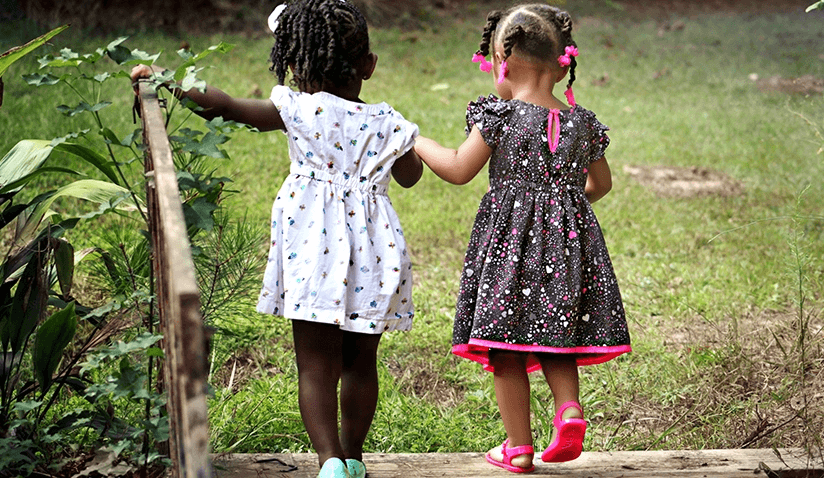10 Reasons Why Children Should See a Pediatrician Instead of a Regular Doctor

In spite of current fashion trends that aim to dress children up like little adults, in the medical world, children are certainly not miniature adults at all. In fact, a child's biology is world's apart from an adult's. This means that all healthcare for kids, from medications to surgery, needs to be implemented in a very different fashion to that of adults.
Many parents miss this important understanding and try to get their family healthcare practitioner or local hospital to treat their young ones; however, what they truly need is a children's specialist doctor - a.k.a. a pediatrician! Children's hospitals and other specialist healthcare providers are just as essential when seeking intensive healthcare for kids. While it is true that many general hospitals offer a pediatric ward, it is not true that these wards offer the same or superior treatment to that of children's hospitals.[1]
To highlight why this issue is so important, we have compiled the below in-depth list of 10 reasons why children need specialist healthcare from pediatric doctors and children's hospitals.
Children's Biology is Incredibly Unique Compared to an Adult's
There are a number of ways in which a child's biology differs to that of an adult which has implications across the board for what they can and can't tolerate treatment-wise. Such implications include the following:
Hormonal Changes and Growth
In many cases, it's not as simple for the doctor to simply lower the dose of a medication one would prescribe for the same condition in an adult based on body mass. This is because children are in a constant phase of growth until they hit between 18 and 21 years - the precise age when pediatricians would be happy to pass the care your child receives over to a general practitioner. A child's organs, muscles and bones are in different stages of development throughout their lives, which needs to be taken into careful consideration by a child specialist before making a choice on an appropriate treatment protocol.
Growth in the human body does not occur on it's own, but is initiated by large injections of growth hormones and other neurotransmitters. Children go through growth spurts as a result of these hormonal injections and these hormones will also alter the way in which medications interact with their bodies. These hormones can also produce symptoms of their own, such as acne or growing pains, which a discerning pediatric doctor will not misdiagnose for some other disease or condition.
Many treatments that are perfectly safe and effective for adults are in fact harmful for the growth and development of the child due to interfering with natural developmental processes. A good pediatrician will offer child-friendly treatment protocols that work with your child's biology to enhance their formative years.
Size and Weight
The obvious difference is the size and weight of the child. Naturally, a pediatric surgeon will have far more expertise in performing procedures on children, used to working with smaller organs and tissues; not to mention, organs and tissues being different sizes at different times of the child's development. Most of the organs in young kids do not grow at the same rate and time, making it very clear that they are not just little adults.
Having smaller organs and tissues also means children are far more sensitive to anything you do to their physiology. A little tends to go a very long way!
Immune System Development
As a child's immune system is still concretizing, children are far more vulnerable to physical stressors, toxins and infections[2]. The care children receive at children's hospitals is far more sensitive to this fact, generally aiming to strengthen the immune system of the child and work with the phase of development that child is in at any given time.
Non-Fused Bones
Nature's intelligent design allows for kids to run, play, injure themselves and learn in the process. A part of the design was allowing for children to have flexible, non-fused bones.[3] Sets of bones fuse at different times throughout a child's life, however by the age of 18-21, most children's bones are completely fused and fully mature. This makes a children's muscular-skeletal system very different to that of an adult - another reason why you ought to only take your children to a pediatric chiropractor or physiotherapist.
Blood Pressure
Due to the changing sizes of all bodily organs at various times during a child's development, children's blood circulation and internal pressure are not the same as an adult, where everything is more or less stable.
For example, young children have heads that are slightly too large for their bodies, smaller hearts and lungs, combined with larger abdominal organs. This causes blood pressure in the head to be lower, while at the same time places pressure on the lungs and heart. As a result, young children are more vulnerable to traumatic head injuries, difficulties breathing or sudden shifts in temperature.[4]
Children Are Not Like Clockwork in their Biology
Another common misconception about kids is that every child is a standard product of their biology, going through growth spurts at the same ages, etc. Unfortunately, not every child grows at the same pace nor at the same time, making age a very poor marker for assessing where the child is at physiologically[5]. Some children will grow really tall before others, some will learn to run or read before others and some will naturally hit puberty quicker.
A pediatric specialist understands this and will carefully consider each part of your child's physiology before giving a diagnosis and deciding on a course of action to take.
Pediatric Hospitals and Doctors Are Far Better Equipped to Handle the Children: Physically AND Psychologically
Aside from the physical differences, children have unique psychological needs. They need to explore the world around them in an attempt to learn and develop optimally, and this often takes place in the form of play. Children's hospitals often have places kids can still play to incorporate this element into their hospital stay and to ensure that they are not too deprived, particularly if they need to remain hospitalized for lengthy periods of time.
Children's doctors and pediatric staff are also generally far more aware of how sensitive children are, often adopting an extremely compassionate and caring approach to the care they give. Unlike adults, children are not as socialized or aware of the commonplace principles that society instills in them as they grow. Pediatricians are trained to handle everything a child could ever throw at them, including the toy box!
Healthcare practitioners for kids are also far more aware of a child's true needs. Instead of disciplining the child, a pediatrician is far more inclined to look at the root of the behavior and gently attempt to fulfil the child's core needs. A general hospital or ordinary doctor may not be as sensitive or discerning of a child's psychological needs.
Many children's hospitals have taken the initiative in this regard too by offering medical support for the mother of the child as well. This is particularly important for infants, toddlers and very young kids who require lots of attention and care from their mothers.
Specialist Children's Healthcare Providers Are On the Frontline of Cutting Edge Children's Therapies and Research
Children's hospitals are often working in connection with universities that study kids to ensure that they deliver only the best child-friendly care and appropriate treatment protocols. Since it is rather difficult to generalize for kids, there is often continuous communication back and forth between the two.
A pediatric ward at a general hospital is not generally working so closely with universities at the forefront of the latest pediatric research, nor getting access to cutting edge treatments that our children deserve. In this respect, treatment standards and protocols are often lacking and many general hospitals will end up referring you to a children's hospital or specialist pediatrician in the long run regardless.
General Hospitals and Regular Doctors Often Slow the Treatment Process Down for Kids
As explained in the last point, the best care is derived from children's hospitals as they are usually working closely with universities and their labs. A pediatric ward in a regular hospital will often need to work through a children's hospital who then contact the university or labs that work with child test facilities. Going directly to a children's hospital skips out the middle man, speeding up the process in terms of devising the best treatment programs and getting back test results.
In a general hospital, a pediatrician will often work hand-in-hand with a regular doctor regardless to treat your child. This is especially case for surgery. Firstly, it is dangerous to opt for a non-pediatric surgeon, however if the procedure was successful, a pediatrician will advise the doctor on how to treat the child afterward, making unnecessary communication and taking up even more time.
Another good point that is referred to even in the scientific literature, is that regular doctors and pediatricians often don't get along, even arguing as to how to treat the child in question. Things will certainly slow down if you take your child to a doctor that mostly treats adults and they have a disagreement when consulting a pediatrician for advice! The outcome could lead to more potential problems for your child too. It is also a known fact that children's hospitals display a statistically improved chance of success, lowering child mortality rates due to being more informed, having far more child healthcare expertise and being able to act faster.[6]
You ought to stop wasting your time and rather visit the pediatrician directly, as they have many more years of experience and tend to take a very gentle approach, which children need.
Going to a Children's Hospital Tends to Be More Cost Effective
Following on from the last reason, less time means less expenses for you and your children. Why pay for the fees of two to three doctors when you will likely only need to consult with one who knows what they are doing?
Children's hospitals also are highly caring and devoted to treating kids from all walks of life. It is perhaps a little known fact that a large percentage of the world's poverty-stricken population are children, meaning that many kids (and parents) lack the means to afford the treatment they need. A child's hospital is obligated to treat all children irrespective and will do their best to make a plan to ensure your child receives the best treatment possible.[7]
Conclusion
To summarize, the take away from this article is that children have completely unique bodies when compared to adults and therefore require different doctors to treat them.
By taking your kids to a pediatrician, children's hospital or specialist pediatric healthcare provider, you will be saving time, costs and increase the chances of a successful outcome for them. Not only will it be of greater benefit to your kids, but since children's hospitals are working closely with research institutions, you will be adding to the general pool of knowledge to help all kids across the globe to receive better healthcare too, as these child healthcare services are continuously improved upon.

Sana Hospital Group is one of the largest independent healthcare providers in Germany. With over 50 world-class hospitals and more than 2 million patients yearly, Sana operates leading facilities, among them university hospitals, tertiary care centers, and specialized hospitals to deliver a broad portfolio of top-tier medical care. Whether it is preventive health care, an acute or chronic illness, a planned procedure, or a long-term diagnosis - more than 600 chief physicians, 4,500 medical professionals, and 11,000 nursing staff provide excellent treatment options, world-class medicine, and the best possible medical care.
Featured Blogs



